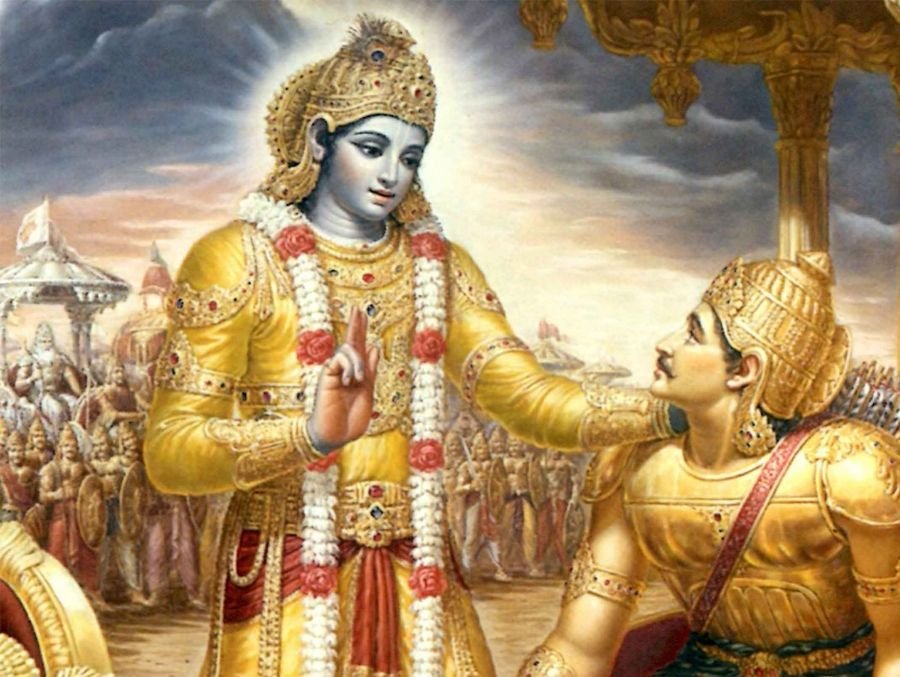(Image Courtesy Mahanidhiswami)
Those Who Aim For Liberation Should Free Themselves From Desires
यामिमां पुष्पितां वाचं प्रवदन्त्यविपश्चित: |
वेदवादरता: पार्थ नान्यदस्तीति वादिन: || 2.42||
कामात्मान: स्वर्गपरा जन्मकर्मफलप्रदाम् |
क्रियाविशेषबहुलां भोगैश्वर्यगतिं प्रति || 2.43||
yāmimāṁ puṣhpitāṁ vāchaṁ pravadanty-avipaśhchitaḥ
veda-vāda-ratāḥ pārtha nānyad astīti vādinaḥ|| 2.42||
kāmātmānaḥ swarga-parā janma-karma-phala-pradām
kriyā-viśheṣha-bahulāṁ bhogaiśhwarya-gatiṁ prati|| 2.43||
Shloka Translation
BG – Ch. 2- Ver. 42 & 43:
Those with limited intellect are drawn to the Vedas’ flowery phrases, which advocate showy rites for elevation to the celestial abodes, and assume there is no deeper principle described in them. They worship just those parts of the Vedas that appeal to their senses, and they hold grand ritualistic events to achieve high birth, opulence, sensual pleasure, and passage to the heavenly planets.
Explanation
There are three portions to the Vedas. Karma-Kanda(ritualistic rites), Jnana-Kanda (knowledge part), and Upasana-Kanda are the three (devotional section). The Karma-Kanda section encourages people to perform ceremonial rites in exchange for monetary rewards and advancement to the celestial realms. This part of the Vedas is revered by those who desire physical pleasures.
The celestial abodes have a higher level of material lavishness and provide more opportunities for sensual pleasure. However, advancement to the heavenly abodes does not imply spiritual awakening. These celestial planes are also part of the material universe, and after visiting them, one returns to the planet Earth when one’s account of good karmas is empty. People with little comprehension aspire for celestial abodes, believing that this is what the Vedas are all about. As a result, individuals continue to transmigrate in the life-and-death cycle without attempting to achieve God-realization. Spiritually wise people, on the other hand, do not set their sights on paradise.
In the previous Shloka, Shri Krishna discussed the significance of focus. He outlines the habits that impede someone from having that focus in this section. In other words, somebody who only thinks about one material want after another would never achieve total equanimity.
Verse & what we can learn
One who aims to free himself from the cycle of birth and death should evolve himself to the level where there are no more desires.
A Desireless state may sound impossible but the one with strong will can achieve this state by practicing daily meditation.
There are various types of meditation like Buddhist meditation, heartfulness meditation, mindfulness meditation, meditation for stress, and each meditation benefits are countless. There are also numerous meditation techniques for beginners which help in practicing daily meditation so go ahead and start your journey towards a peaceful and balanced life.
In the next verse also, Lord Shri Krishna tells Arjuna how worldly pleasures become an obstacle in our path towards reaching God.
Let’s learn to live with “The Gita” via Meditation Affinity…
